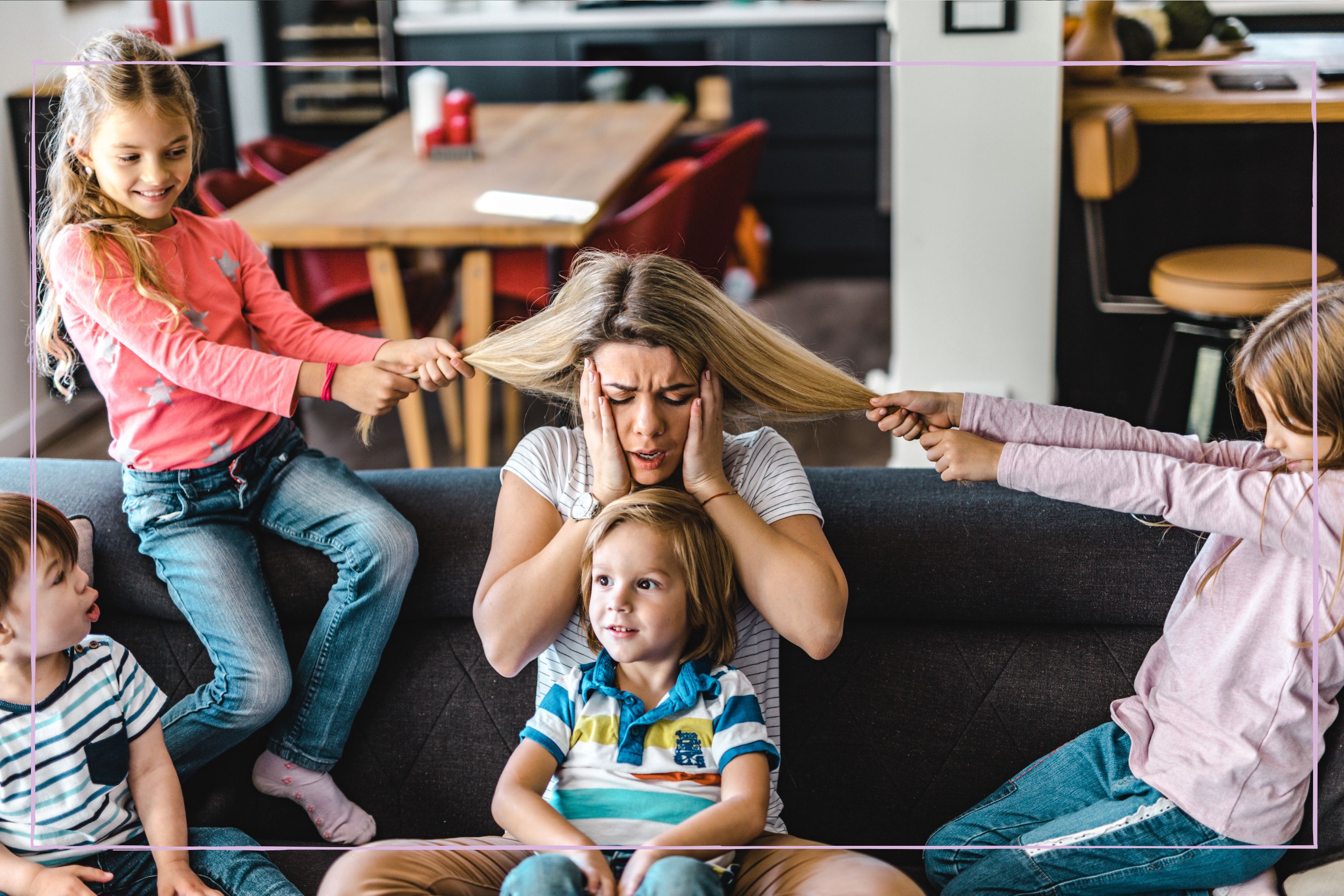
A professional nanny has revealed why children resort to pulling their parents' hair to get their attention. She's also shared some tips and tricks to get them to stop doing it - and your hair will thank you for following them.
Whenever you get a moment to yourself, finally sitting down with a cup of tea or even getting to run yourself a bath to try out the best new bath oils, out of seemingly nowhere appears a child and, to no one's surprise, they reach for your hair and give it a good ol' tug.
These moments of relaxation are so important to help parents manage stress and, with the news that two thirds of parents feel constantly unwell as they're forced to ‘power through’ day-to-day family life, we need them more than ever. But kids don't seem to understand that.
But now professional nanny Laura Amies - known as Nanny Amies on TikTok - has revealed exactly why your kids resort to hair pulling when they see you've finally sat down for a moment of peace. And she's shared exactly how to combat the behaviour.
"They don't understand it hurts, they don't understand the social norms involved with this type of behaviour," Amies says of kids' approach to hair pulling. What they're really after, she says, is 'connection'.
"It might be that you've been doing goodness knows what, your 101 jobs that you need to get done, and you've finally sat down with a cuppa. And your little one might have been, or might not have been, playing quite happily on their own and then mummy's sitting down and they think 'I'd like a connection,' [and] yank [your hair].
"The best thing to bear in mind when it comes to little ones craving that connection is that your response doesn't really matter. Your response could be 'lovely, how are you?' Or it could be 'stop it!' It could be 'ow!' It doesn't matter. It's the connection. It's a thrill for them if you have this shocked reaction."
@nannyamies ♬ original sound - Nanny Amies Parenting Support
So what can be done? Are we meant to just sit and let our hair be pulled? Not exactly, says Amies. "The first thing is to train ourselves to not react in a way that is much more loud and essentially more animated than what we were doing previous to the hair pulling. How we react will determine how likely they are to behave this way in the future."
She shares her own experiences, saying that if a child is still pulling her hair when she has not reacted to it, she will 'very gently' take their hand from her hair and 'just move away.'
If your child is older and understands verbal queues, 'adding in language is very important' to help them learn not to pull your hair. Amies suggests using simple terms like, 'that hurts,' and 'ouch,' and recommends saying them calmly.
In defence of her suggestion to ignore hair pulling, Amies explains that the connection children seek through it should instead be given to their 'calmer and nicer behaviours' so they can learn the benefits of being kind and respectful.
"Less is more. It will pass. If you respond calmly, it will pass," she promises.
Keep up to date with more family news like nearly half of teenagers are concerned about having children - and there are two huge factors making them worry and these 5 tips from a relationship expert can help you navigate your first half-term without any fallouts, as well as, dealing with being single-shamed as a parent - 5 top tips from an expert for when other people weigh in on your love life.







